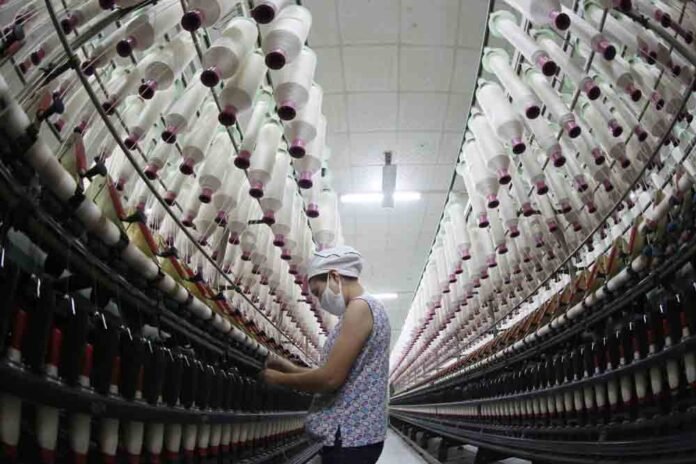Now overseas demand is waning Vietnam’s economy is moving towards a slump after posting GDP growth of 8 percent last year on the strength of manufacturers like Samsung Electronics, LG, and Hon Hai Precision Industry that powered exports.
Though textiles and apparel account for only 11 percent of its total exports, two years back it was at par with Bangladesh in textiles and garment exports. Now Bangladesh is far ahead as its export progress in the textile sector also declined while that of Bangladesh accelerated.
Besides the global slowdown, entrepreneurs are facing a local credit crunch and a corruption crackdown. Weak internal demand leaves the country without much of a hedge. Vietnam has long served as a cheap alternative to China for companies outsourcing production. Its position was strengthened by a trade agreement and warmer relations with Washington that spared its manufacturers from tariffs and sanctions applied to its northern neighbor.
At $372 billion, gross export earnings now equate to a whopping 90 percent of output last year, government data shows; of its neighbors, only oil-producer Malaysia has ever approached such a level. Now overseas demand is stuttering. The country lacks China’s enormous consumer market; gross national income per capita was around $3,600 in 2021, compared to $12,000 in the People’s Republic. While Vietnamese workers are more youthful than China’s, they are older than their peers in Indonesia and India, so the country’s labor-cost competitiveness may not last.
A long-running corruption crackdown that felled former president Nguyen Xuan Phuc in January should yield long-term benefits. It is disruptive now, however: paralyzing the bureaucracy, trickling into the real estate sector and rattling the benchmark stock index.
Manufacturers have lost some enthusiasm. The world’s largest maker of branded sports shoes, Pou Chen, said last month it would cut some 6,000 jobs in Ho Chi Minh City, just two years after complaining it couldn’t find enough workers.
Most of Vietnam’s neighbours, including China, reduced their dependence on exports by developing dynamic private enterprises that moved up the value chain and hiked wages: a virtuous cycle. However, the Party’s predilection for concentrating investment in inefficient state entities will serve it ill, especially if FDI keeps cooling. If Hanoi really wants to compete with Beijing, it might have to change its ways. Vietnamese exports were flat in February and fell 23.4% in January compared to a year earlier, according to Refinitiv data released on March 9.



